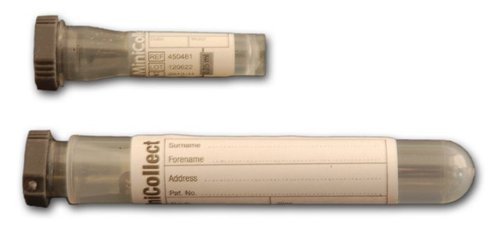Glucose tolerance test (GTT)
Chemical Pathology
Notes
- To diagnose diabetes mellitus, gestational diabetes or impaired glucose tolerance.
- If there are other clinical reasons for investigating glucose loading e.g. reactive hypoglycaemia or excessive growth hormone secretion then please contact the duty biochemist for alternative tests and protocols.
Precautions & Contraindications for the Test:
None.
Patient Preparation
- The test can be performed at the patient's surgery.
- It is important that the patient should have had normal meals during the last 3 days prior to the test and should not have been dieting.
- The test should be performed in the morning after an overnight fast [8 - 14 hours].
- The patient should be sitting quietly and must not smoke during the test procedure.
- False results may occur if the patient has recently been ill or has had prolonged bed rest.
- Water drinking is permitted during the period of fasting and during the test procedure.
Items Required
- 2x blood collection bottles: -
For adults and children: 2 x 2mL fluoride-oxalate tubes

For very young children: 2 x 0.25mL minicollect fluoride-oxalate tubes

- 1x bottle of POLYCAL [manufactured by Nutricia Clinical Care] - 113 mL of Polycal is equivalent to 75g of anhydrous glucose.
- Prepare the drink for the patient in advance as described below and keep in the fridge.
For ADULTS:
Dilute the Polycal as follows:
Make 113 mL of Polycal up to 200 mL with drinking water and mix.
For CHILDREN:
- Weigh the patient (children over 43 kg will require the full adult dose)
- 2.6 mL of Polycal is required for each kilogram body weight up to a maximum volume of 113 mL of Polycal
For example: a 30 kg child would require 30 x 2.6 = 78 mL of Polycal
- Dilute the volume of Polycal required for body weight with an equal volume of water and mix.
Test Procedure
- Take blood into a grey top fluoride-oxalate tube and label with specimen time and as "FASTING" as well as the usual patient identification requirements.
- Give the patient the prepared Polycal drink.
- Note the clock time. The drink should be consumed within 5 minutes
- Ask the patient to drink another 100 mL of water after finishing the Polycal drink.
- Collect a further blood sample 2 hours after the Polycal drink was started. Label tube with full patient identification detail, "2 hour sample" and actual time of sample.
- Full patient identification on sample tubes and request card should include surname, forename, date of birth and NHS or hospital number as well as the sample date and time.
- Send all samples together with the request form to the laboratory.
Interpretation of Results
| Non-pregnant (including >6 weeks post natal) | Fasting venous plasma glucose (mmol/L) | 2 hours post glucose load venous plasma glucose (mmol/L) | |
|---|---|---|---|
| Diabetes Mellitus | greater than 7.0 | OR | 11.1 or greater |
| Impaired Glucose Tolerance (IGT) | less than 7.0 | AND | 7.8 - 11.0 |
| Impaired Fasting Glycaemia (IFG) | 6.1 - 6.9 | AND | less than 7.8 |
| PREGNANT | |||
| Gestational Diabetes if: | greater than 5.5 | OR | greater than 7.7 |
Useful Links
- [NG28] Type 2 diabetes in Adults: Management
- [NG17] Type I Diabetes in Adults: Diagnosis and Management
- WHO publications on diabetes
- [NG3] Diabetes in Pregnancy: management from preconception to the postnatal period
- GTT Patient information leaflet
Follow-up Tests If Diabetes Has Been Diagnosed
- Haemoglobin A1c
- Microalbumin
- Patients diagnosed with gestational diabetes should be offered lifestyle advice (including weight control, diet and exercise) and offered a fasting plasma glucose measurement (but not an oral glucose tolerance test) at the 6-week postnatal check and annually thereafter (please refer to guidelines above for full details).
Page last updated 24/04/2019